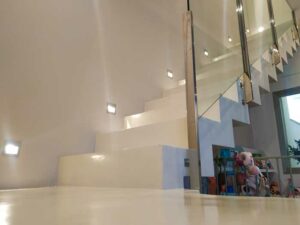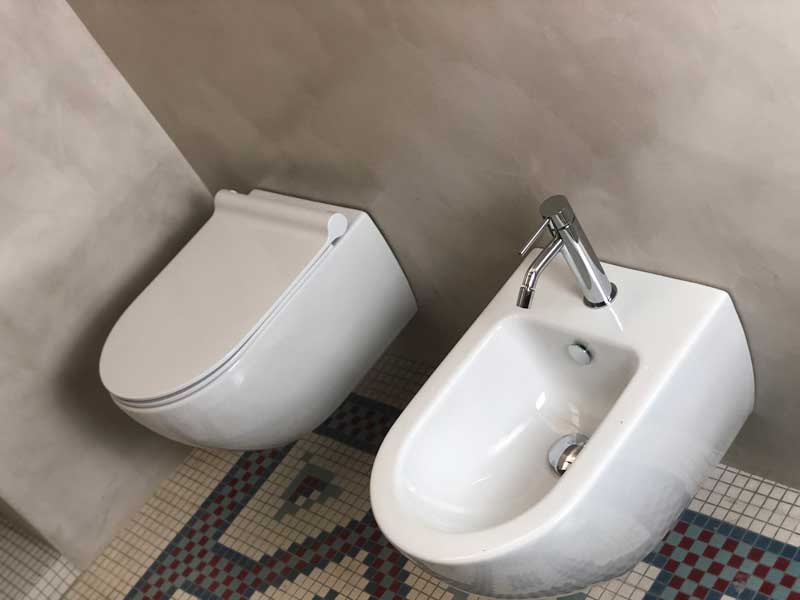
Microcement vs. Tiles: The Battle of the Coverings! eng
Microcement vs. Tiles: The Battle of the Coverings! Renovations with Microcement MICROCEMENT and TILES – When it comes to floor and wall coverings, tiles have
Why should I reform my bathroom with microcement? It may be that this question comes to mind, when both decorators and architects are advising to reform with microcement. Currently, the natural finish is being sought, and without joints, since hygiene conditions improve exponentially.
Let’s see the reasons that make the reform of a bathroom with microcement the best option.

One of the characteristics that make microcement the best coating in a bathroom is its impermeability. The traditional or bicomponent microcement was a waterproof coating from the moment the polyurethane layers were applied.
With the ready-to-use microcement this has radically changed. It is a totally waterproof technical material based on which its resistance to humidity is much more powerful than the traditional one. Its use in the bathrooms is a guarantee of success.
Microcement is a coating with high adhesion power and minimal thickness. These two properties make it a perfect alternative to reform a bathroom, since it is not necessary to remove the tiles. The microcement is applied directly on the tiles, simply increasing the thickness by 3 mm, and without increasing the structural load due to the little material that is provided. Thanks to this, it will not be necessary to apply for a work permit either, reducing the associated procedures and costs.
Microcement, and specifically the ONEROCK ready-to-use microcement, is a highly resistant to abrasion and impact microcement. It is a technical material developed after years of research, resulting in the simplest microcement to apply and with high hardness.
Microcement is a natural material that can be pigmented just before it is applied, so the final finish can have as many options as you can imagine. From gray colors simulating a cement finish, to more vivid colors, the alternative combinations are endless.
Another advantage of using microcement in a bathroom is that we can cover the countertop with microcement. The possibility of integrating the countertop in this way with the wall can only be achieved with microcement. The feeling it will give is that the worktop comes out of the wall, since the coating, if applied at the same time on the wall and the worktop, will be totally continuous.
To learn more about our ONEROCK ready-to-use microcement, visit our Lunik website.

Microcement vs. Tiles: The Battle of the Coverings! Renovations with Microcement MICROCEMENT and TILES – When it comes to floor and wall coverings, tiles have
Frequently Asked Questions about Microcement Everything You Need to Know Microcement is a versatile and modern cladding material that has gained popularity in the world

Microcement Maintenance How to care for microcement MICROCEMENT MAINTENANCE – Microcement is a modern and versatile material that is used to cover floors and walls.